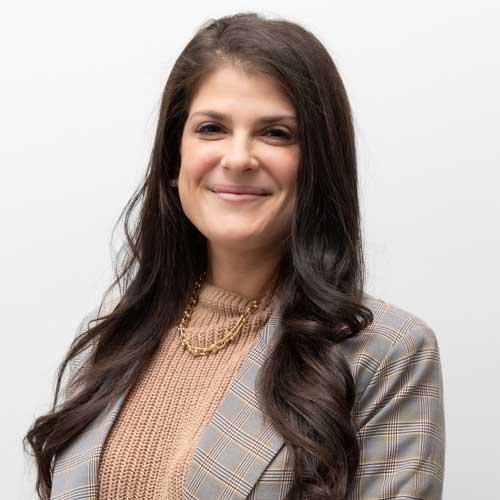Addiction and mental health treatment in Connecticut is carefully designed to help meet the needs of anyone seeking recovery. Whether you’re dealing with a mental health challenge, substance use disorder, or both, the team at the Connecticut Center for Recovery has developed targeted strategies to help you achieve your goals.
Connecticut Center for Recovery’s Addiction and Mental Health Treatment Philosophy
Substance abuse and mental health disorders aren’t simply matters of behavior, choice, or genetics. Instead, they can be influenced by nearly every aspect of daily life — from your environment, relationships, thoughts, and circumstances.
It’s often not enough to just treat symptoms. Instead, addiction and mental health treatment in Connecticut focuses on whole-person healing. This means providing strategies to help you heal in body, mind, and spirit — and tackling everyday life’s challenges in healthy and adaptive ways.
This whole-person model of healing is the core philosophy of treatment at the Connecticut Center for Recovery, and our strategies for recovery reflect this holistic approach.
Strategies to Address Holistic Health
Using various approaches and treatment methods is critical to helping people heal holistically. Some of the strategies used at our outpatient treatment center include:
Dual Diagnosis Care
Mental health and substance use disorders often go hand in hand. According to the National Institute on Drug Abuse, 37.9% of adults with substance use disorders have a mental health disorder, and 18.2% of people with mental illness have a substance use disorder.1
For people with co-occurring disorders, dual diagnosis care is the most effective way of achieving holistic recovery. Dual diagnosis treatment emphasizes treating both disorders simultaneously, which means that people can break free from addiction and achieve a lasting mental health recovery as well.
There are several components to effective dual diagnosis care, including:
- Accurate assessment and diagnosis
- Targeted mental health treatment interventions
- Effective substance use treatment
- Combined mental health and addiction support groups
If left untreated, mental health disorders increase the risk of relapse for people who have achieved sobriety. Similarly, leaving a substance use disorder unaddressed can lead to worsening mental health after completing treatment.
By addressing both disorders simultaneously, people have the best chance of achieving a lasting and worthwhile recovery.
Outpatient Care
The Connecticut Center for Recovery offers multiple outpatient care options to help people on their recovery journey, including:
- Intensive outpatient programs (IOP)
- Outpatient programs
- Extended care programs
Connecticut Center for Recovery focuses on outpatient treatment options because they work. Research has shown that outpatient options are just as effective as inpatient treatment2 while easing the process of stepping down from care once people have learned the tools of recovery.
Outpatient treatment has several other advantages, as well. Our clients can continue living at home, practice the skills of recovery in their community, and access extensive support options for overcoming their mental health challenges.
Evidence-Based Practices
Evidence-based practice makes up the heart of the Connecticut Center for Recovery treatment model. Treatment techniques are considered evidence-based when they’ve been proven effective at helping people maintain abstinence, improve their mental health symptoms, and learn effective coping strategies to maintain their recovery for years to come.
Our team uses multiple evidence-based practices in our outpatient service model, including:
- Individual therapy
- Group therapy
- Acceptance and commitment therapy (ACT)
- Cognitive-behavioral therapy (CBT)
- Dialectical behavior therapy (DBT)
- Eye movement desensitization and reprocessing (EMDR)
- Internal family systems (IFS)
- Motivational interviewing
- Trauma-focused therapy
- By providing a comprehensive suite of evidence-based practices for our clients, we ensure that no matter your challenge, there is an effective treatment option to help you recover.
Start Addiction and Mental Health Treatment in Connecticut
Every strategy for addiction and mental health treatment is unique, as no two people face the same obstacles in achieving recovery. To start an individualized treatment plan at an effective, evidence-based treatment center, reach out to the Connecticut Center for Recovery by phone or fill out our online contact form for more information.
Sources:
[1] https://nida.nih.gov/research-topics/comorbidity/comorbidity-substance-use-other-mental-disorders-infographic
[2] https://doi.org/10.1176/appi.ps.201300249

Alexis earned both a B.S. in Psychology and a B.S. in Family and Child Sciences from Florida State University and an M.A. in Marriage and Family Therapy from the University of San Diego. She holds licenses in Marriage and Family Therapy in Florida, Connecticut, and Massachusetts and is also a member of the American Association for Marriage and Family Therapy (AAMFT).
Alexis works with families, couples, children, and groups and also has a sub-specialty in addiction and recovery. She utilizes an integrated, systemic approach to counseling; empowering people to define what is not working for them in their lives and to discover the possibilities for making life work. In doing this, clients are guided towards identifying their strengths, accessing their resources, tapping into their potential for success, and taking action toward achieving their desired goals.
Alexis also has extensive experience in the administration of behavioral health organizations. She has developed, built, and supervised several facilities encompassing all levels of care while leading them through state licensing and The Joint Commission accreditation process.

